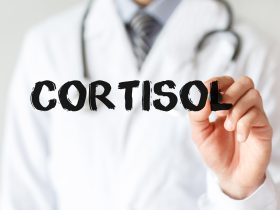Rheumatoid arthritis is a form of arthritis that lasts a long time and is caused by inflammation and pain in the joints. In addition to that, it could cause tooth issues.
Rheumatoid arthritis, also known simply as RA, is a form of arthritis that lasts for a long time and is characterized by joint discomfort, swelling, and inflammation. RA can also cause additional, less obvious issues, such as effects on your teeth and your oral health, which can be a concern for people who have the condition.
Brushing and flossing your teeth on a consistent basis might be made more challenging by RA, which can make it more difficult to maintain a healthy jawbone, teeth, and other oral tissues.
Certain medications used to treat rheumatoid arthritis (RA), as well as other diseases and disorders, can result in dry mouth and other oral and dental issues. Although this may not happen frequently as a result of taking medications for RA, consulting a healthcare team is still a vital approach to determining the likelihood of experiencing any adverse reactions to the medications you take, whether they are prescribed or purchased over the counter.
This article will discuss some of the most frequent oral and dental problems that can arise in people who have RA, as well as the procedures that can be taken to treat these problems.
Rheumatoid arthritis can affect teeth?
Your oral health may suffer if you experience bone loss due to rheumatoid arthritis (RA). Rheumatoid arthritis (RA) is an autoimmune illness that causes inflammation throughout the body.
Even though the changes may be most visible in your joints, which is likely because this is where the pain and inflammation are at their worst, bone deterioration and decay can also occur in a wide variety of other parts of your body.
Does rheumatoid arthritis affect your jaw?
The autoimmune disease rheumatoid arthritis (RA) is a chronic condition in which the body attacks its own cells, resulting in progressive damage to the bones, joints, and other tissues.
Pain and inflammation are two common symptoms of rheumatoid arthritis (RA), which can affect any joint in the body. In most cases, RA affects more than one joint. The temporomandibular joint (TMJ) is a joint that moves your jawbone when you speak or chew. Because there is nothing that can really be done to prevent using this location, discomfort in this joint can be very difficult to bear and can cause a great deal of physical pain.
Bony disintegration of the TMJ is a potential problem, but it almost never occurs in adults whose inflammatory symptoms are under good control. The disease process associated with RA, as well as the medications used to treat it, might cause your jawbone to deteriorate, which can lead to tooth loss.
Can people with rheumatoid arthritis obtain dental implants?
In order for dental implants to successfully replace teeth that have been pulled and replaced with implants, new bone needs to form in the area where the extracted teeth were located. In patients who have rheumatoid arthritis (RA) or in those who take specific medications to treat RA, the growth of their bones is sluggish or nonexistent.
Can you get a tooth extraction if you have rheumatoid arthritis?
Dental extractions are occasionally necessary in order to treat issues related to oral health. If you suffer from RA and need to have a tooth extracted, there is a possibility that you will face some additional challenges.
However, the severity of those problems will vary greatly depending on the reason(s) for your tooth extraction. If you put off getting a tooth pulled when it’s absolutely required for something like treating an infection, you could end up with a whole lot of other problems.
Discuss your unique reasons for needing a tooth extraction, as well as the potential hazards associated with the procedure, with a dentist or other healthcare expert. Rarely is rheumatoid arthritis (RA) or the medications used to treat it a valid reason to postpone or even completely cancel a tooth extraction.
How can you relieve arthritic tooth pain?
Rheumatoid arthritis (RA) is characterized largely by pain. In addition to anti-inflammatory drugs (ARVs), your doctor might also prescribe nonsteroidal anti-inflammatory drugs (NSAIDs) or other painkillers. These drugs are effective against a wide variety of pain, including dental pain and RA pain, so you shouldn’t have to take different prescriptions for each. Tooth discomfort on its own may not be due to rheumatoid arthritis.
However, if you have been diagnosed with RA and you start experiencing tooth discomfort, you should consult your healthcare team or dentist. They may be able to rule out more serious reasons for your pain or infection, which is especially important if you have rheumatoid arthritis and are taking drugs that suppress the immune system.
The autoimmune disease rheumatoid arthritis (RA) is a chronic condition that causes the body to attack its own bones and joints. It’s possible that any joint or bone in your body, including the ones in your jaw and mouth, could be damaged.
If you have RA, it is essential that you practice good dental hygiene in order to reduce the risk of infections and other causes of inflammation in the mouth. Because of the delayed bone growth that is linked with RA, there is a possibility that any tooth extractions or implants could be made more difficult, but a dentist or a healthcare team can help you make efforts to limit the likelihood of issues occurring during the procedure.















Find Us on Socials